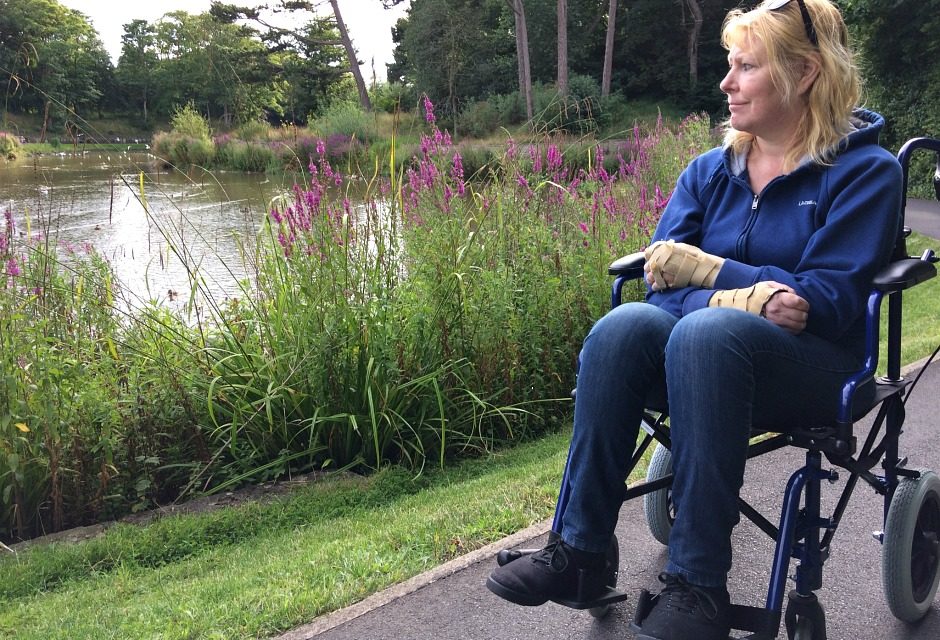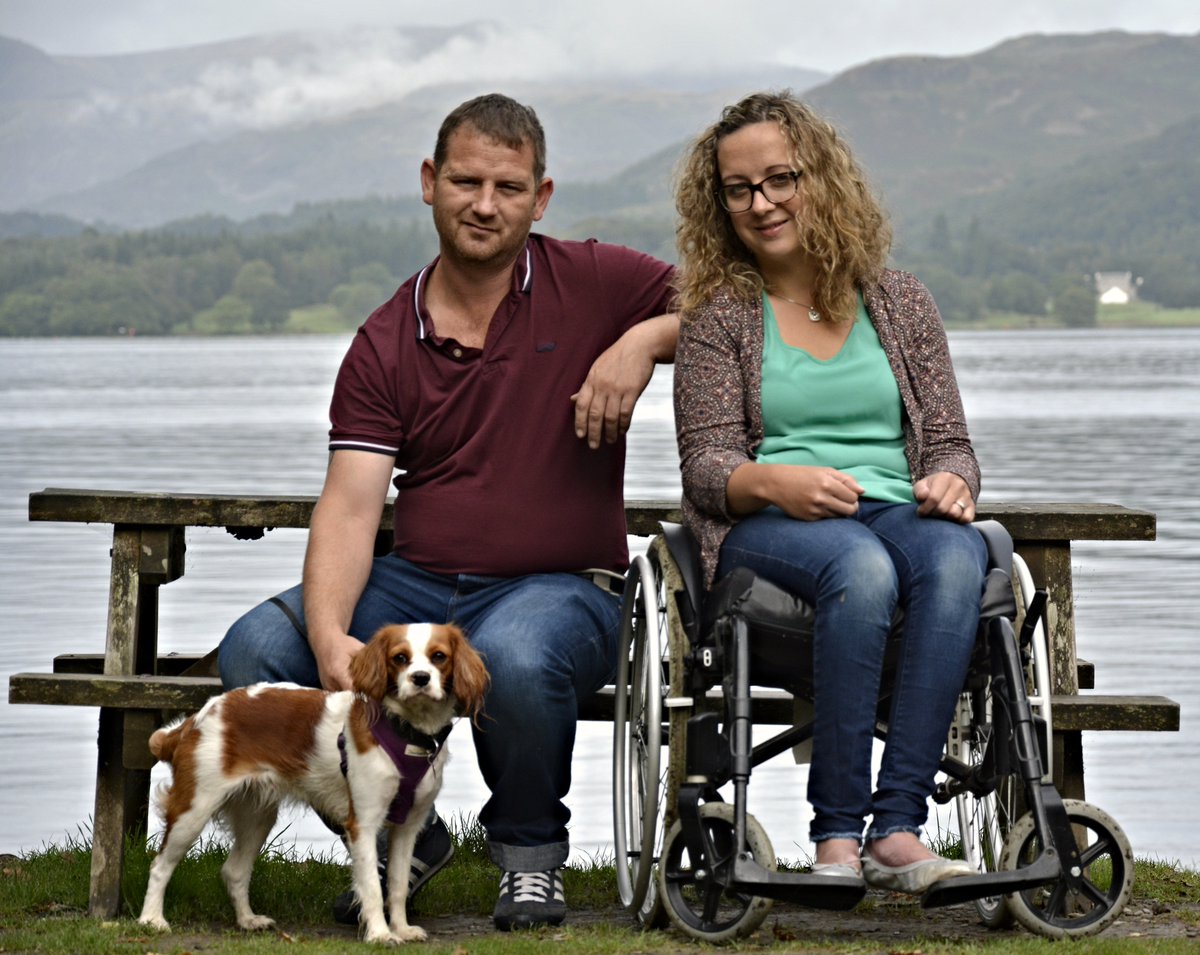Accessible travel: the opportunity and the pitfalls
/Bridget from The Bimblers. Image credit: The Bimblers
For most people, going on holiday is a time of rest and relaxation. The most difficult part of the process is usually limited to deciding where to go, or making sure not to leave the passports in the top drawer of the bedside cabinet.
But for those with accessible needs, a broad term encompassing people with disabilities, age-related problems and other physical limitations, there is a lot more than meets the eye when it comes to booking an accessible-friendly holiday.
Nobody knows this Dr Simon Darcy, Professor at the University of Technology and the mind behind Accessible Tourism Research. He has quadriplegia, and uses a wheelchair. He describes feelings of anxiety when he books trips abroad, likening the process to “mini research projects.”
Dr Simon Darcy (right), who is behind the blog Accessible Tourism Research. Image credit: Simon Darcy/Twitter
“What happens, quite often, is that people become very loyal to those places they go to, and maybe not experiment as much as they have done in the past,” Darcy says.
“You have specialist travel agencies that do a very good job of providing services for people of varying disabilities, and they’re fantastic! But most travel agents don’t have the requisite skill and training to be able to provide a service on par to that which they offer able-bodied people.”
“What I’d like to see is the government encouraging organisations to be far more inclusive. Those companies that are selling goods and services need to understand that there are groups that have a human right under a variety of legislations when it comes to services like anybody else.
“They understand that you’re not marketing to one person, but you’re marketing to the three or four other people that travel with them. They’re not maximising their opportunity for profit and yield by ignoring the group.”
One team trying to improve the accessible experience is Tourism for All, who aim to provide disabled travellers with a personalised information and advice service.
“Although we’re not travel agents, we help disabled people plan and take holidays and breaks – both in the UK and overseas – with confidence,” says Carrie-Ann Lightley, Tourism for All’s Information Service Manager.
Carrie-Ann Lightley (right) from Tourism for All. Image credit: Carrie-Ann Lightley
“We recognise that everyone has very individual requirements, so our approach is to understand their needs and wishes before using our extensive knowledge and contacts to find places and experiences that will be right for them.
“A break or a holiday is important to our lives, giving us something to look forward to, time to enjoy out families, a chance for adventure or perhaps some time to ourselves to recover and acquire memories of happy times.
“In the past, some of us have encountered barriers to our participation in tourism – disabled people, older people, carers of young people or disabled or older relatives. Tourism for All works to overcome these.”
Over the last two decades there have been great technological advancements in the world that have made things easier, creating opportunity for growth and improvement. This is extremely apparent in the accessible travel industry.
Rob and Bridget Obey are two people that have been able to take advantage of this by starting off their blog The Bimblers.
“Back in 2014, Bridget and I had a dilemma. Bridget’s health deteriorated and I was forced to give up work to care for her. Terrified by the thought of sitting at home, we started travelling locally in a wheelchair and blogging about it,” explains Rob.
“What started off as a personal travel blog soon evolved into the the UK’s number one travel and lifestyle blog for wheelchair users and people living with chronic illness.
“The biggest advancement is information as the internet has made a lot more of it available. People have more options and are able to make a more informed choice. Review sites and blogs all play a part in opening up the world of travel. It’s far from perfect, but is so much better than 20 years ago.
Bridget (right) and Rob (centre) of The Bimblers. Image credit: The Bimblers
It isn’t just the internet that has helped make strides, but also advances in equipment, making it easier for companies to give an inclusive service.
“Getting on planes can be a daunting experience for people of higher support needs. There’s a really cool piece of equipment called the Eagle Lifter 2, which means that you don’t have to be manhandled,” says Darcy.
“It’s a hoist with a sling, and that sling goes around your body. Instead of being transferred four times, you only have to be transferred twice to get from your wheelchair to the seat, and back into your wheelchair again. It’s made for a more independent, dignified and equitable approach to airline travel.
“So really innovative tech, to make what used to be quite a haphazard and dangerous task, provides a much better user experience, particularly within the airline industry.”
There is a belief, however, that the government and travel companies could do a lot more with the resources they have at their disposal, as Rob explained:
“The main issue that crops up time and time again is a lack of factual information. When information is the difference between visiting a place or not, the lack of it is a constant problem.
“Even when information is available, it’s often written by people who don’t understand the audience they’re writing it for. Inevitably, the information is inaccurate or written to appease legislation rather than the paying customer.
“Utopia for us is accessible travel becoming the norm, even mainstream. Without a doubt, the size of the market is growing, we are an ageing population, and with that comes an increase in access needs.
“In one respect, we want accessible travel to stop being niche and start becoming just another aspect of mainstream travel.” This is a point Carrie-Ann agrees with:
“I think we need to continue to raise awareness of accessible tourism and champion the businesses that are doing it right. Being accessible is not about protection against the law, or even how to avoid problems, but about an opportunity to raise standards and to grow.”
In the UK, the government have said before that they are committed to making strides in the inclusion of accessible needs, following the creation of the Equality Act 2010 which aims to protect people from discrimination in the workplace and wider society. This included the action of the “Transport for all” scheme, with provisions that will benefit both domestic and foreign tourists.
Transport for All is a well-backed campaign looking to make public transport in the UK more accessible for passengers with specific needs. Image credit: Transport for All/Twitter
The 21st century has ushered in a start for the accessible travel trade and those who it impacts. But while it’s certainly been a turning point, it is, evidently, just the beginning.





















Travelling as part of your job is super-exciting, but some people think it’s a holiday – and I can actually see why they might.